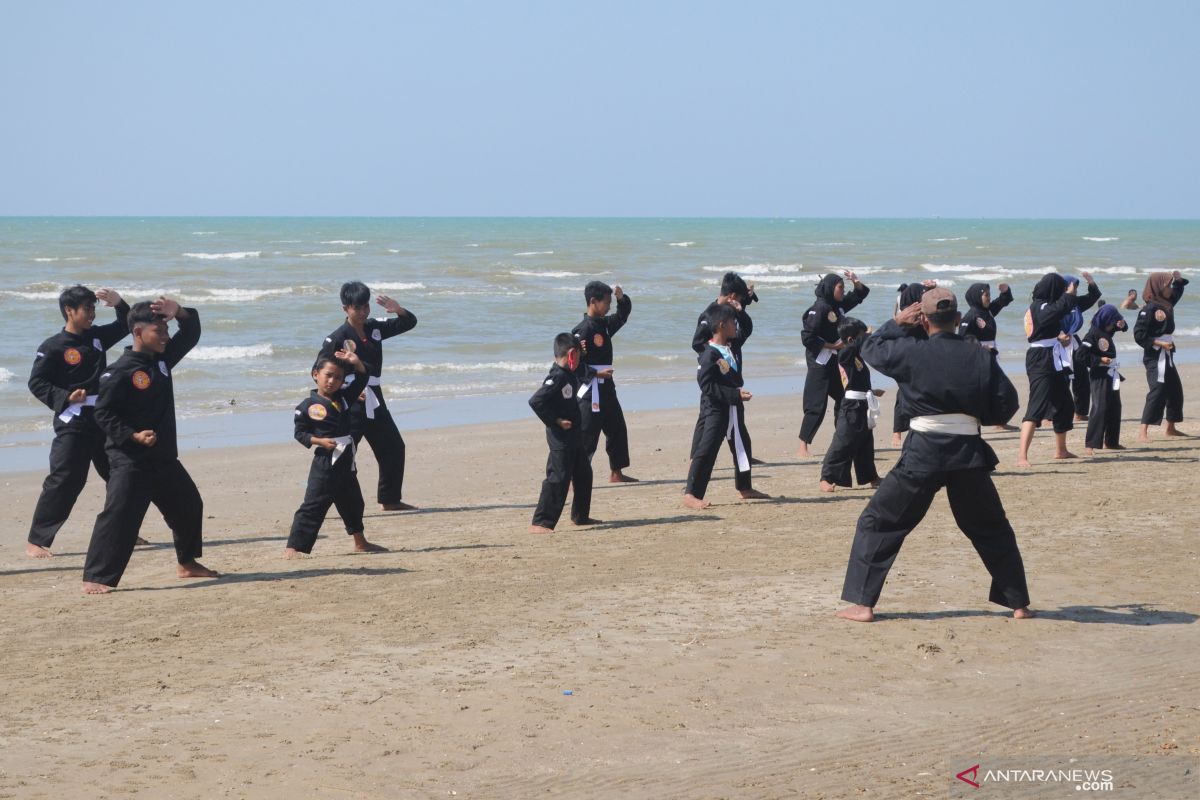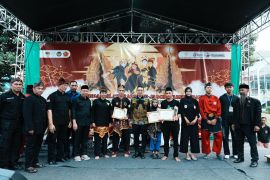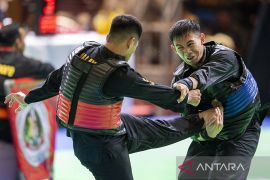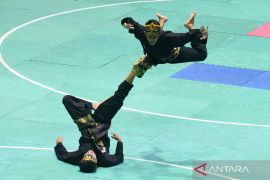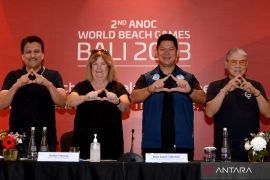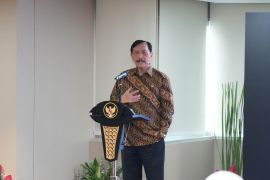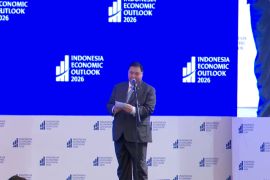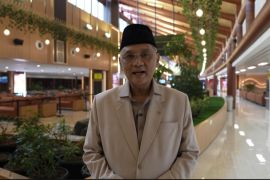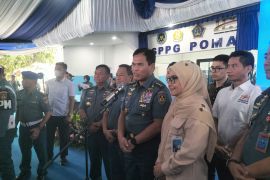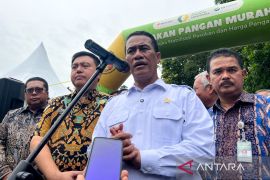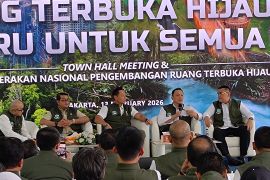Indonesia needs to be resilient to enable it to maintain its existence. Without resilience, it cannot survive, and developBogor, W Java (ANTARA) - Indonesians have just finished celebrating the country's 76th Independence Day as they continue to battle COVID-19 pandemic that has severely hit the nation's public health and economy.
In commemorating this year's Independence Day, the government chose the theme of "Indonesia Tangguh, Indonesia Tumbuh" (Powerful Indonesia, Growing Indonesia) to highlight the importance of resilience.
The government's chosen theme seems to be relevant to the needs of Indonesia and many other nations across the globe to survive and win their fights against the coronavirus that has no definite end.
Assuming that the coronavirus pandemic continues and apparently affects public health, the government has allocated Rp255.3 trillion for the health sector in the 2022 State Budget draft.
That budget allocated for the health sector equals to 9.4 percent of total planned state budget which stands at Rp2,708.7 trillion.
Related news: Indonesian Pencak Silat martial art inscribed on UNESCO Heritage list
The efforts to make Indonesia be a powerful and developed nation are not only related to budgetary issues but also to endurance and resilience cultivated from Indonesia's own cultural heritage.
One of the cultural heritage assets is Pencak Silat, a traditional martial art that has existed in various communities living in the Indonesian archipelago for centuries.
This Indonesian martial art was even recognized by the United Nations Educational, Scientific and Cultural Organization (UNESCO) as part of the world's intangible cultural heritage of humanity in 2019.
According to Sariat Arifia, a Pencak Silat practitioner who led the Pencak Silat Association in South Africa, the martial art is indeed relevant to efforts to make Indonesia a powerful and growing nation.
Related news: Thousands of fighters to participate in pencak silat festival
More than cultural practice
He argued that Pencak Silat is more than just a cultural practice praised simply as the nation's internationally-recognized heritage.
Instead, it can help cultivate, empower, and transform Indonesia to become a resilient and powerful nation amid tougher competition among nations now and in the future.
"Indonesia needs to be resilient to enable it to maintain its existence. Without resilience, it cannot survive, and develop," said Arifia, who is patron of the Jakarta-based Al Azhar Youth Leader Institute (AYLI).
Being able to transform itself into a powerful and growing nation, Indonesia will continue moving forward, addressing any threat and challenge, and optimizing opportunities for greater benefits for its entire people.
Sariat Arifia argued that Pencak Silat is not limited to fighting and performing but it is also related to values as reflected in the meaning of its words "Penca" or "Pencak" and "Silat".
"Penca" or "Pencak" means "five" while "Silat" contains a mean of "resilience training". Thus, the word Pencak silat can mean "five ways of resilience/toughness training".
"One of the sources of its tradition or culture is rooted in Cimande, West Java. 'Mande' means 'forging'," he said, adding that five things that are "forged" (mande) are physical body, mind, sense, heart, and spirituality.
Related news: Minister promotes martial arts in face of Olympic Games
For those who have successfully passed through the processes of forging (mande), they become "Pandekar" or "warrior".
As H.Djatnika Nanggamihardja (2021) suggests, the warriors are also called "heroes", namely the people who are rewarded for the good deeds they have done, Sariat Arifia said.
"Everyone who has the resilience must, of course, go through 'forging' either in martial art training or real life," he said.
In contrast to a common methodology of education where students are often placed in a comfort situation that enables them to mature with luxury and convenience, Pencak Silat trainees do not get such that comfort.
"Instead, they develop through pain or physical suffering, discomfort, difficulties, and processes of forging after forging that really test the limit of their abilities," Sariat Arifia argued.
Related news: After ASIAD, pencak silat expected inclusion into UNESCO ICH List
Deep-rooted in noble culture
Therefore, if there are individuals who associate Pencak Silat with crime or negativity, they, indeed, do not understand the fact that this traditional martial art is deep-rooted in Indonesia's noble culture.
It has become an undeniable fact that "pencak" and "silat" have existed in the Indonesian archipelago for centuries but the benefits of this martial art are not merely limited to self-defense but also to spirituality.
In Sariat Arifia's point of view, the Pandekar or warrior have "sharpness of reaction, steadfastness to suffer pain, chivalry, and sportsmanship".
That is why, it is very important to see pencak and silat get maintained as best as possible (Soekarno, 1952). In learning the martial art, pencak and silat cannot be learned recklessly.
According to Sariat Arifia, conditions and requirements are applied. In this regard, custom, etiquette, and manners are the basis for the pencak and silat education and training.
It is obvious that both pencak and silat contain good elements to build the foundational human qualities. Thus, being good at pencak and silat will enhance the dignity of Indonesia (Hatta, 1952).
Referring to the views of the founding fathers of the nation on pencak silat, Sariat Arifia argued that both Soekarno and Mohammad Hatta clearly conveyed a similar message: "pencak silat is a product of the nation's culture, and contains good elements".
Theirs are in line with an understanding that "budaya" or culture comes from the word "budi" or mind and "daya" or power. "Budi" means perfection and being commendable, while power is effort, he said.
Commendable effort
Related news: Asian Games (news focus)- Indonesia glorious in pencak silat debut
In short, it can be concluded that the birth of pencak Silat is the result of a commendable and positive effort, while the opposite of culture (budaya) or cultivation is a "power reproach" (cela daya), he argued.
Sariat Arifia noted that evil which is the result of negative thoughts is not culture but a reproach of lust (H. Djatnika Nanggamihardja, 2021).
Understanding pencak silat only as fighting motion is obviously a big mistake. The processes of forging within pencak silat can be adopted and transformed into Indonesia's defense and educational activities.
Thus, if the state administrators in Indonesia do comprehend the true meaning of pencak silat and are encouraged to implement the mandate of the nation's founding fathers regarding the existence of this martial art, a powerful and growing Indonesia can someday be turned into a reality.
"Insya Allah (God willing), with the state administrators' awareness, a goal of making a powerful and growing Indonesia as echoed in the chosen theme of Indonesia's 76th Independence Day can be realized through the 'mande' (forging) of the noble culture of Pencak Silat, and Indonesia becomes more and more dignified," Sariat Arifia said.
Related news: Papua needs extraordinary COVID effort ahead of PON: Prabowo
Related news: Paralympics athletes to get same appreciation: minister
Editor: Fardah Assegaf
Copyright © ANTARA 2021
